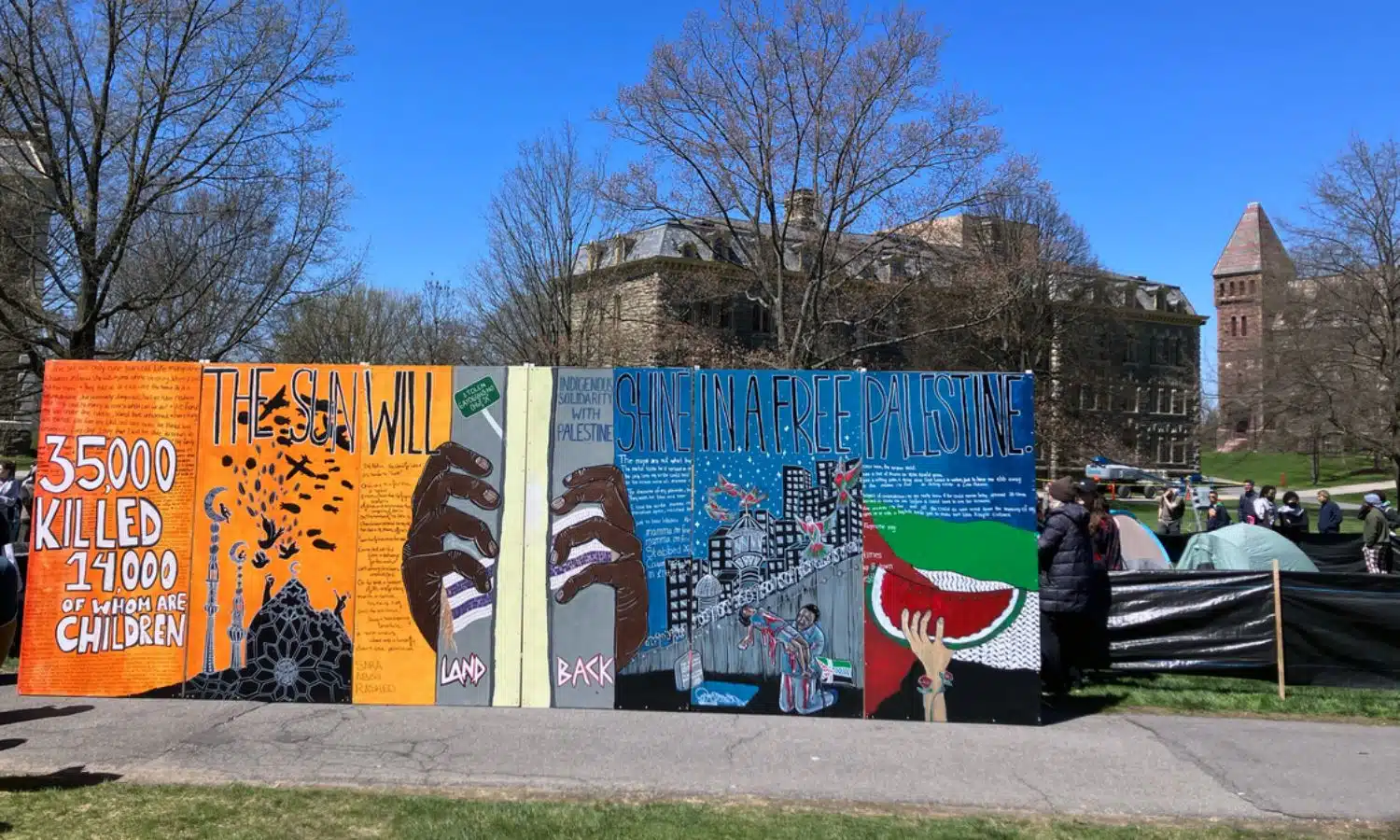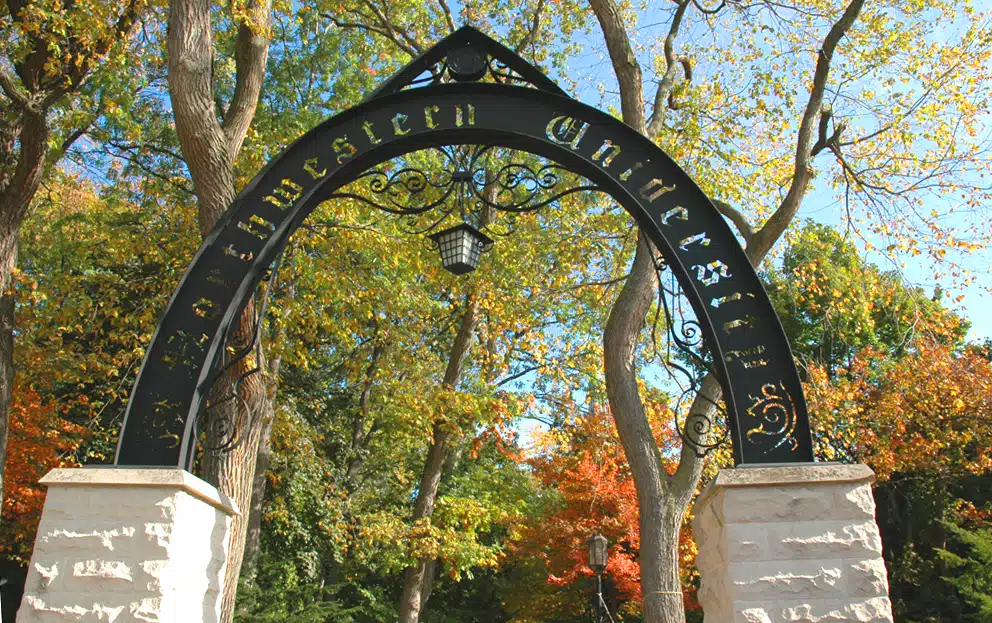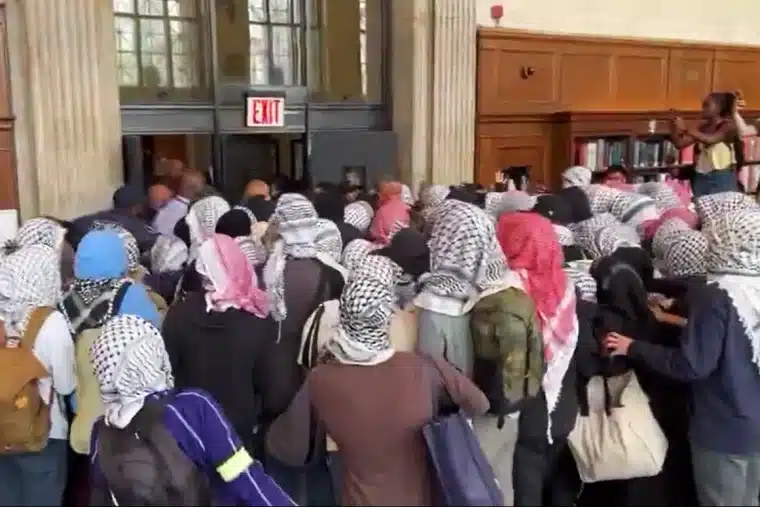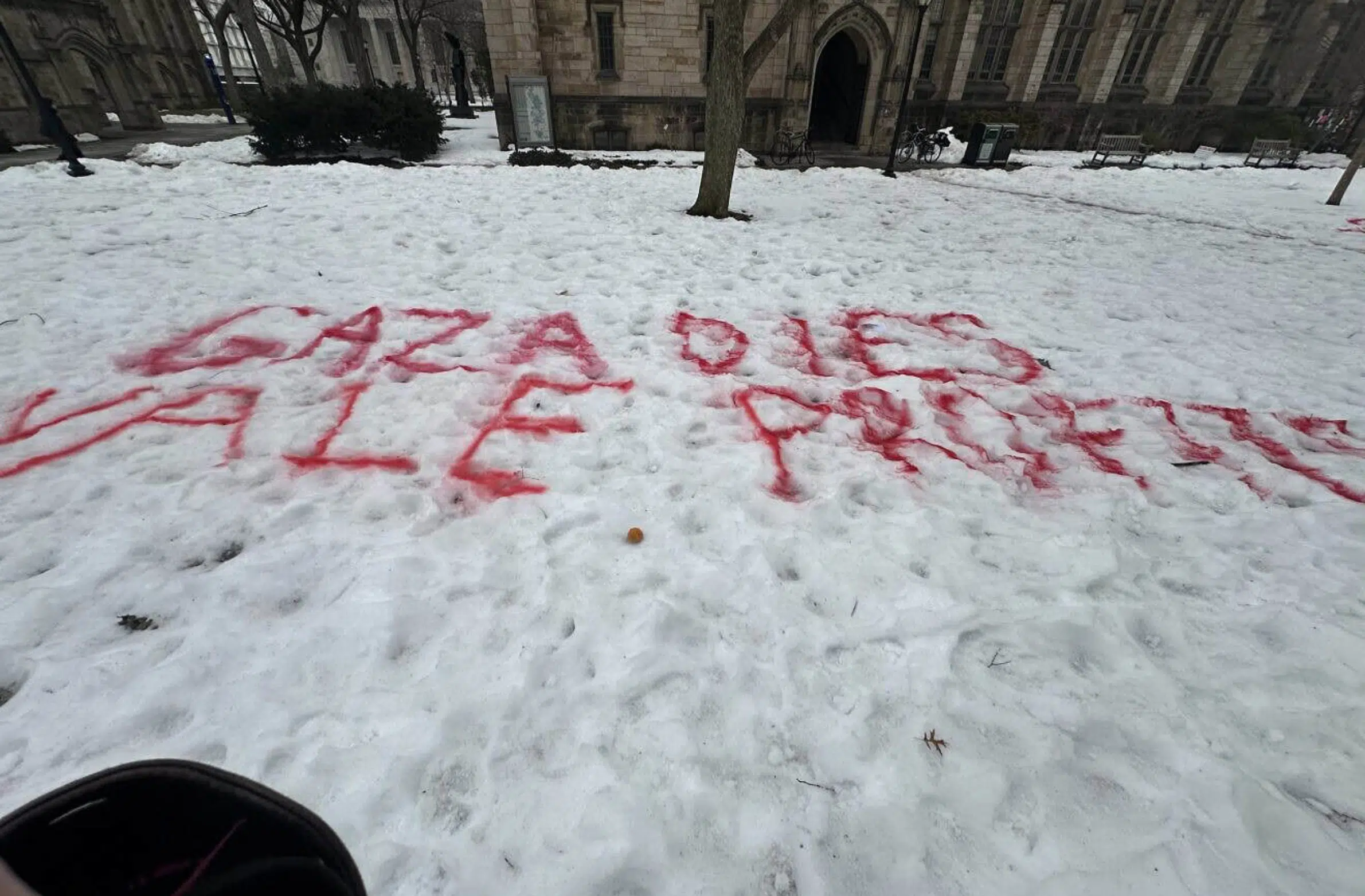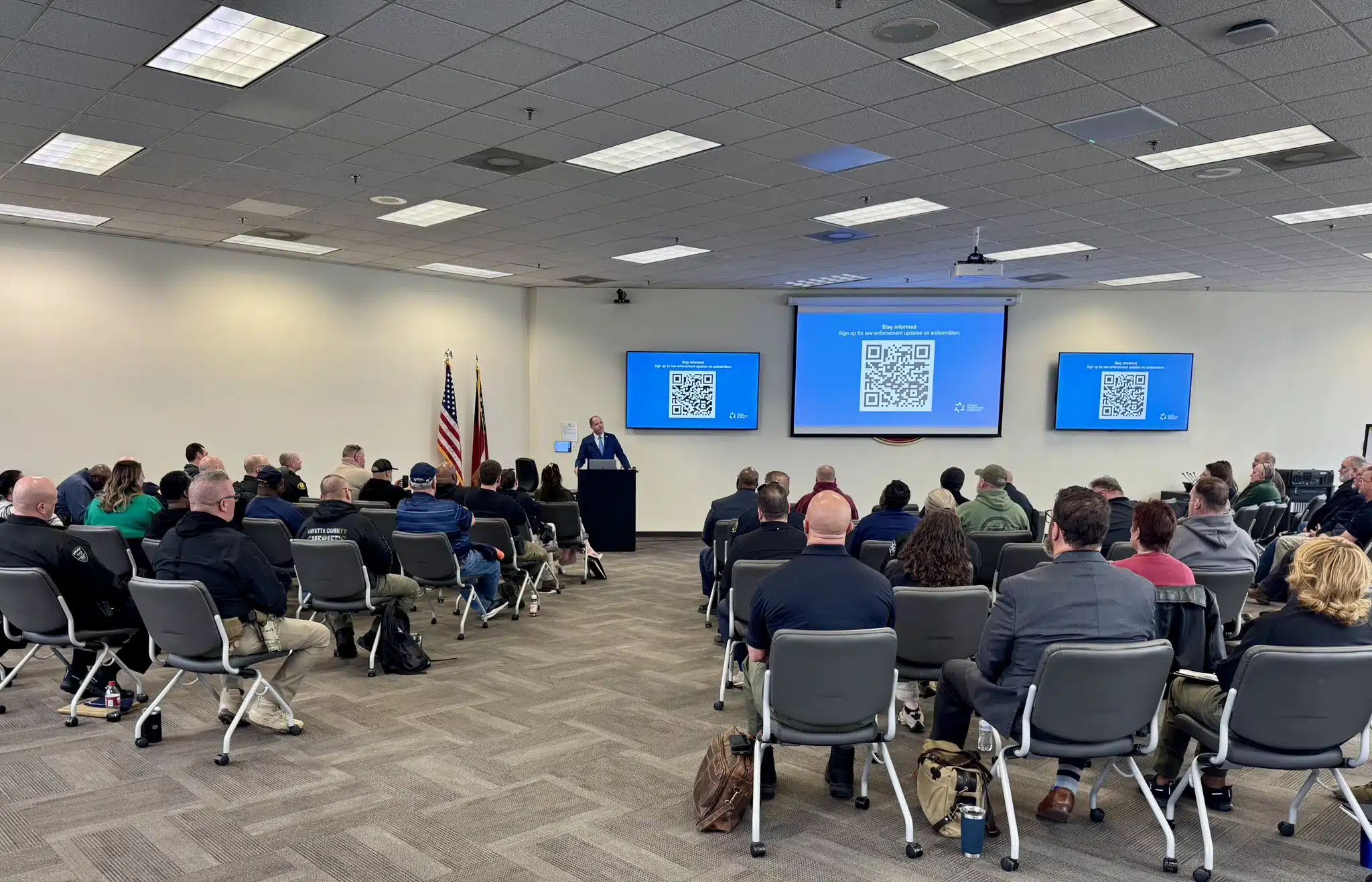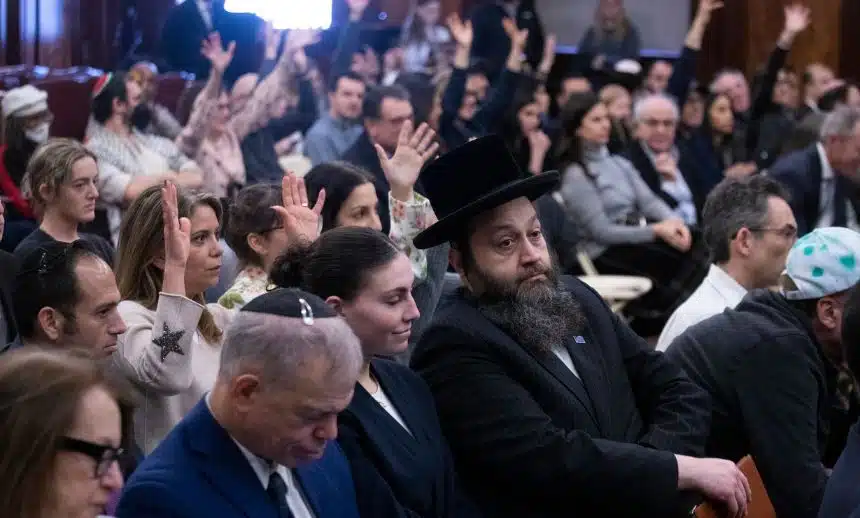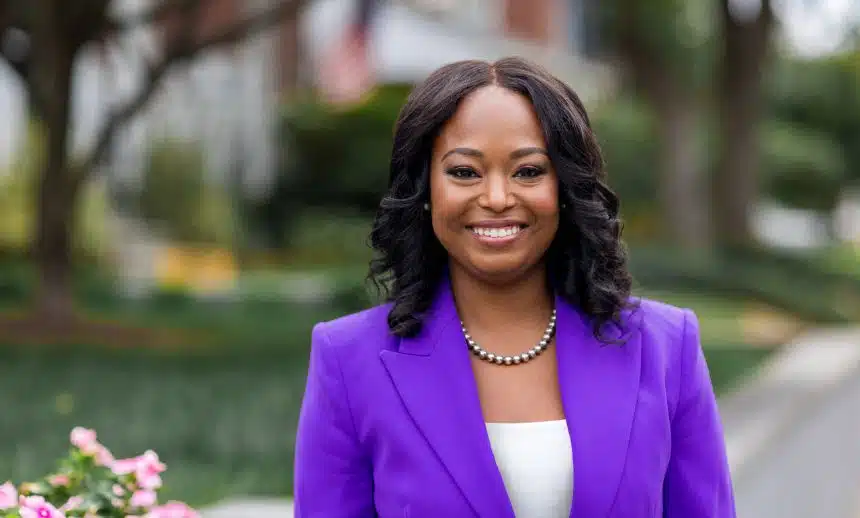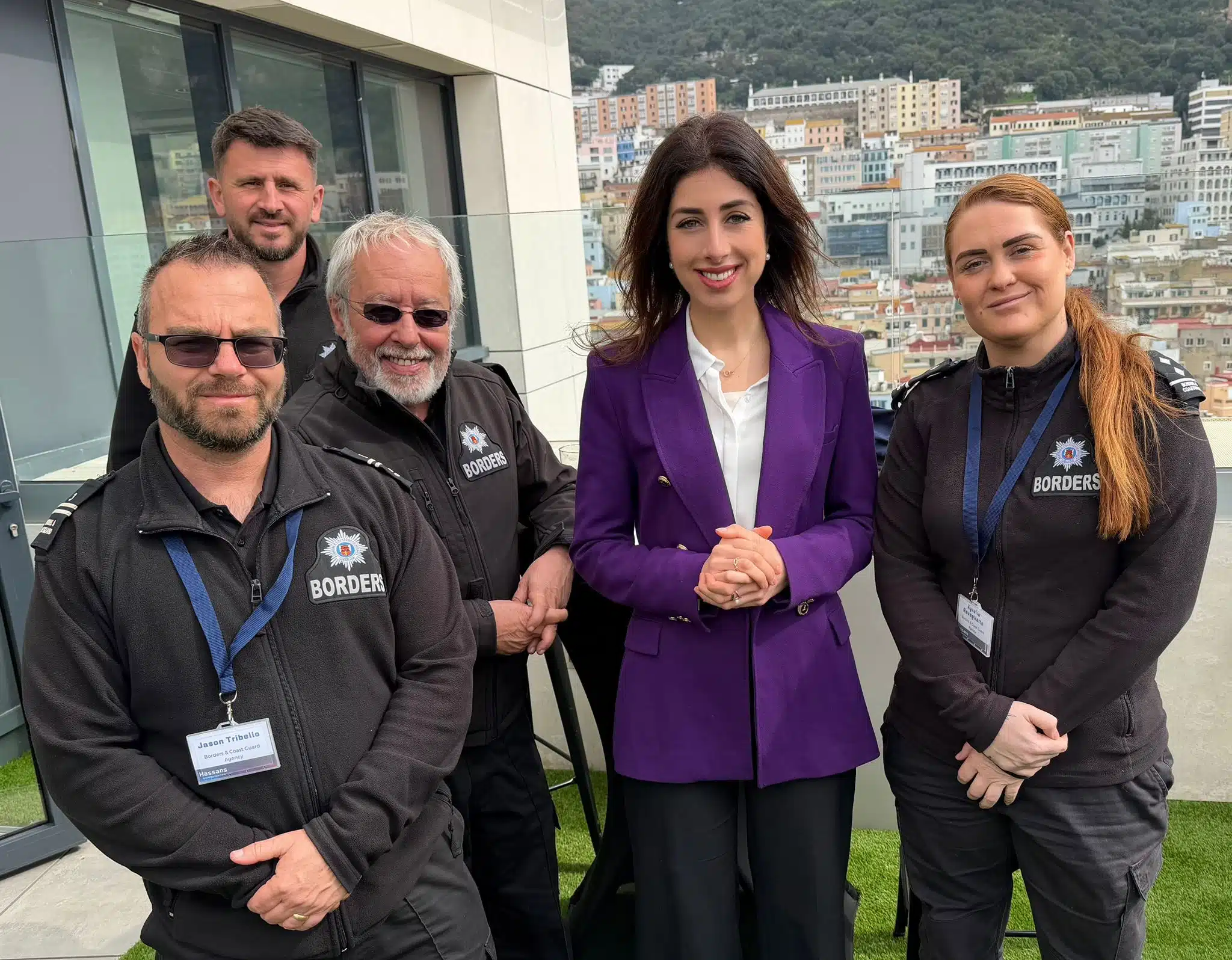|
Getting your Trinity Audio player ready...
|
Like at many schools across the United States, the aftermath of the October 7th massacre in Israel has been fraught for Jewish students at Cornell University in Ithaca, New York, with antisemitic threats, demonstrations, and rhetoric disrupting life and creating a foreboding atmosphere of insecurity.
Among other incidents, in remarks at an on-campus rally shortly after October 7th, Cornell Professor Russell Rickford said he was “exhilarated” by the attack, and a few weeks later Cornell junior Patrick Dai was arrested and sentenced to 21 months in federal prison for violent online threats posted against the school’s Jewish community.
13 months after October 7th, with a new school year well underway, the Combat Antisemitism Movement (CAM) spoke Ezra Galperin, a Jewish sophomore at Cornell, to get an on-the-ground perspective of the situation on campus.
Galperin is an at-large Student Assembly representative and house manager of the Center for Jewish Living. He is also involved in the Maccabee Task Force.
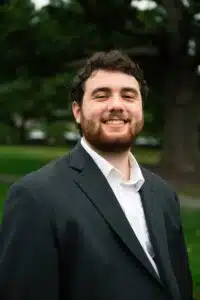
What has the past year been like as a Jewish student at Cornell?
“Immediately after October 7th, we had groups like SJP glorifying ‘armed resistance,’ and there was there was the professor who talked at a protest about how he was ‘exhilarated’ by the October 7th attacks. It was probably at its worst second semester last year, when they started to do their thing where they occupy buildings, and the administration wasn’t doing anything about it.”
“They then put up the encampment that they had over part of the spring semester. That was just a colossal failure on the part of the administration to stop that from happening. The administration kind of took on this policy of ‘pretend this doesn’t exist’ … but nonetheless it was really disturbing to have it there. I have friends who were blocked from going to class by protesters, it was not good.”
“When the encampment finally ended, the then-president of Cornell sent out an email thanking the protesters for not being violent. That was like the baseline for me. I mean, you allowed this intimidation and flagrant violation of academic policy to go on for weeks, and now you’re thanking them?”
“This school year, I would say that some of the things that groups like SJP have been doing have gotten worse, but the response from the administration has been much better. We have a new interim president [Michael Kotlikoff] now.”
[Martha Pollack stepped down as Cornell president at the end of June.]
“The night before classes began, the main administration building was vandalized, with the windows smashed. Then we had a riot at a career fair. This involved students pushing past cops, among other things, and shutting down a career fair with companies to which they had objections. By the way, it was an HR career fair, for opportunities in human resources, not for opportunities in developing weapons or anything like that.”
“They shut it down. Basically, the companies packed up their stuff and left. But the response from the administration was pretty firm. Three students were arrested, and a few have been banned from campus for three years since they were caught on video pushing past cops. Some 20 others have received suspensions.”
“I think we’ve been very successful in undermining the BDS campaign since then. I think what they did there really pissed a lot of people off.”
“It’s really good to see the university actually taking action. And since they took action, things have been surprisingly calm.”
You were recently involved in thwarting a pro-BDS resolution in the Student Assembly. Tell us about this success.
“We got a BDS resolution tabled in the Student Assembly indefinitely before it was under final consideration. It’s done for good, they can’t come back to it for the rest of the academic year.”
“Basically, [the supporters of the resolution] made a bunch of missteps, so the first thing we did was to take advantage of those missteps. They submitted the resolution on October 7th. We were like, ‘Why would you do this now?’ It was right before Yom Kippur. We asked why they chose to do this a time Jewish Assembly members and students couldn’t really come to speak against it.”
“Ultimately, it was really a matter of mobilizing our community to reach out to their representatives in advance. We sent out this call — ‘Here’s who represents which constituency within Cornell. Reach out to them, and set up meetings with them if you can.’ And by doing that, we won votes to table the resolution. We made sure we understood the legislative procedure, so that we could do this as smoothly and as quickly as possible.”
How many students are really involved in the anti-Israel activities on campus?
“Not as many as they’d have you think. They’re really turning a lot of people off because of how much noise they are making. Cornell students don’t have time for BS like they’re pushing. That’s basically my message. The majority of people are rational and see exactly what’s going on.”
“They had a vigil for their ‘martyrs’ on the October 7th anniversary, and 30 people or less showed up. We got 500 people at our vigil. Cornell students don’t have time for BS like they’re pushing. That’s basically my message in my public-facing role on campus. The majority of people are rational and see exactly what’s going on.”
What is your outlook on the situation for Jewish students at Cornell? Do you think things will get better or worse?
“I’m cautiously optimistic. I think the new administration sees the failures of last year.”

